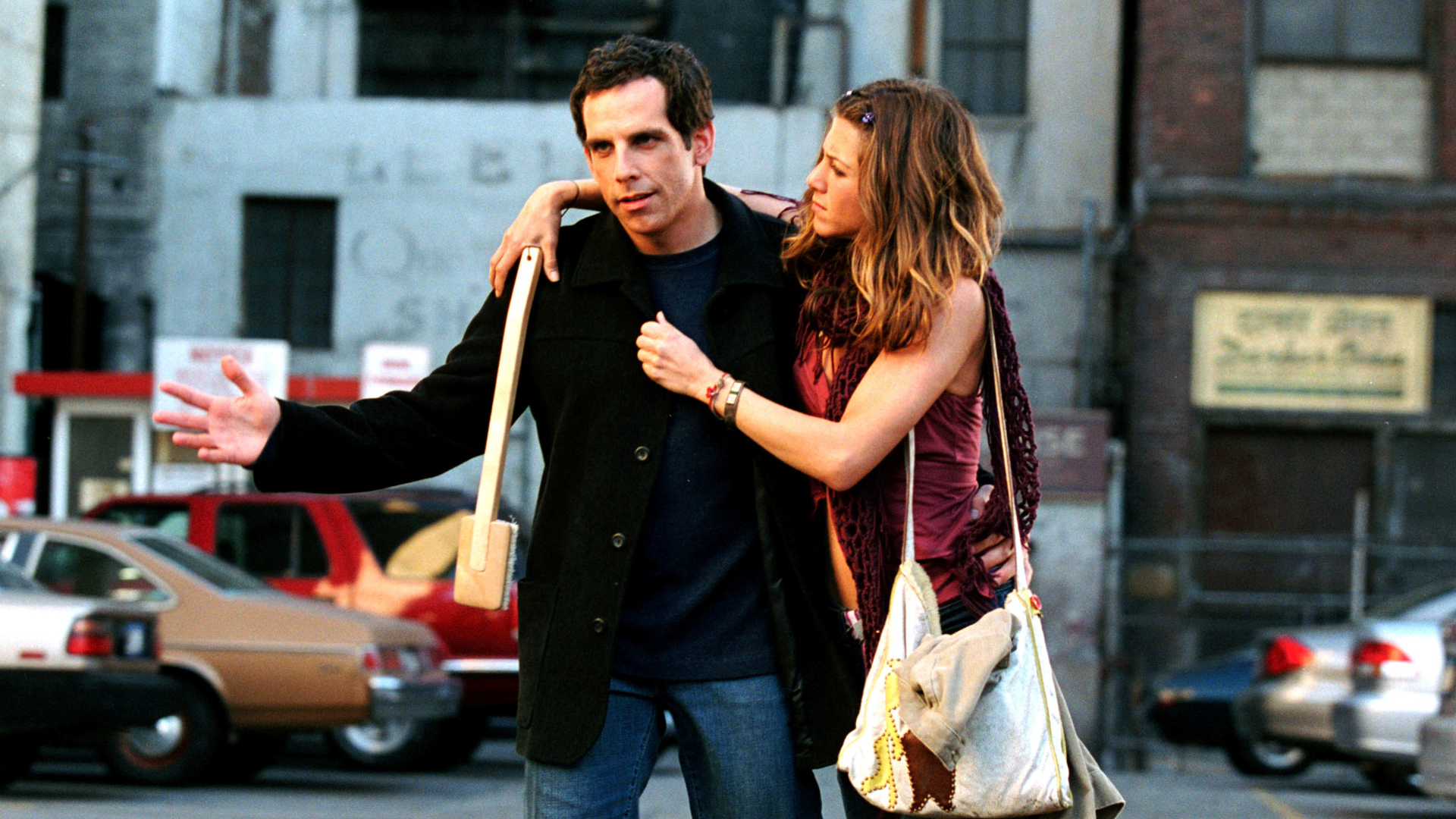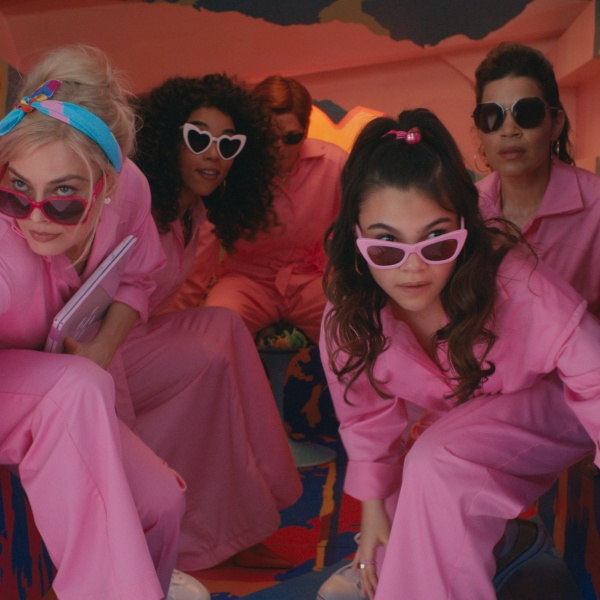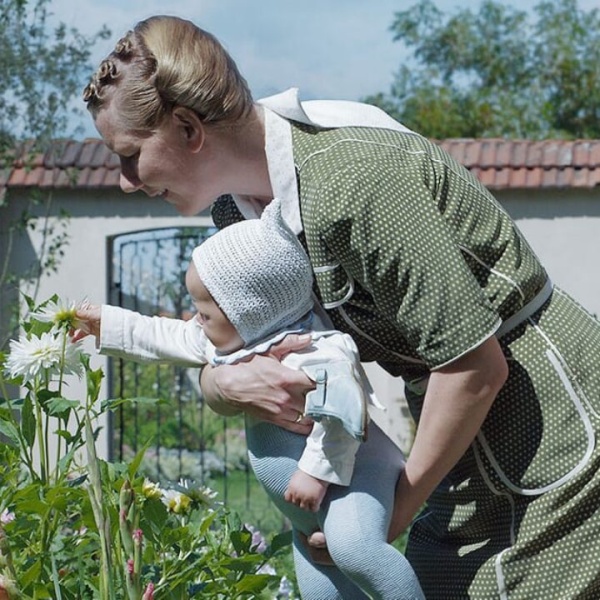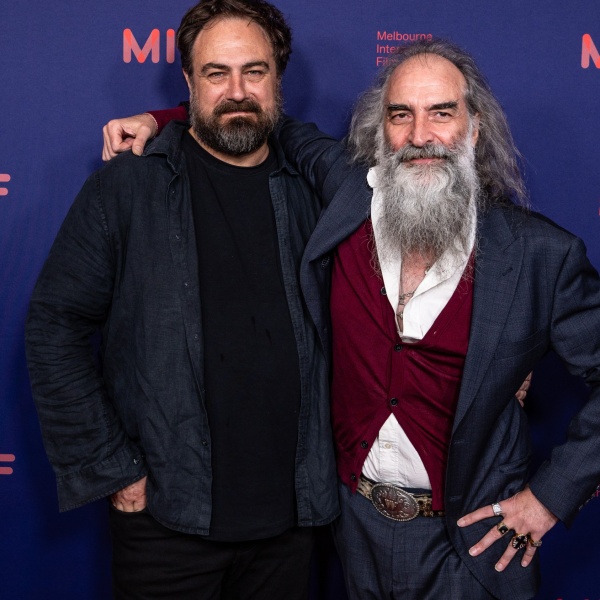It’s been 20 years since senior Model UN delegate Polly Prince wandered back into the life of unlucky-in-love insurance adjuster Reuben Feffer.
Jennifer Aniston charmed the pants off Ben Stiller‘s persnickety everyman as the chaotically seductive title character in “Along Came Polly”: filmmaker John Hamburg’s raunchy odd coupling about a New Yorker who catches his wife (a perfectly loath-able Debra Messing) cheating on him with a scuba instructor (a hysterical and jacked Hank Azaria) during their tropical honeymoon. Back in the city, with the misguided help of his friend and former child star Sandy Lyle (the late Philip Seymour Hoffman at his funniest), Reuben runs into blast from the past Polly, who may or may not be the real love of his life, just two weeks later.
From flooded apartment bathrooms and sweaty basketball matches to extra violent children’s books and an unforgettable salsa number, this all-timer romantic comedy went woefully unappreciated by critics when it hit theaters on January 16, 2004. Still, it did well at the box office and for plenty of genre fans, it has become a spiritual companion to other feel-good favorites, like the Farrelly Brothers’ “There’s Something About Mary” or Hamburg’s earlier “Meet the Parents” directed by Jay Roach. It boasts one of the most iconic basketball scenes in cinematic history and easily its most memorable hippopotamus monologue. Don’t even get me started on its triumphant blind ferret representation.
In honor of the film‘s anniversary, IndieWire spoke with Hamburg about the “Along Came Polly” legacy — reflecting on everything from the film’s real-life inspiration to its myriad alternate titles and numerous practical stunts; plus Stiller’s ferret bite, Aniston’s on-camera magic, and more. Au revoir, Luban!
The following interview has been edited and condensed for clarity.
IndieWire: “Along Came Polly” is one of the more criminally under-appreciated rom-coms out there. What do you make of the movie’s legacy 20 years in?
John Hamburg: The movie did really well when it came out. It, like many comedies, was not a critical darling. But we thought we had made something really funny and good and with great performances. It’s been, honestly, one of the most gratifying things of my career to have people quote lines from it. It’s in everyday life; you meet people who have seen it or who grew up with it or discovered it later. You never know when you make these comedies what’s gonna last, but it’s been just, I guess the word is gratifying that, for some people, the movie has some staying power.
Between “Bottoms” and “No Hard Feelings,” sex comedies made a big comeback last year, even with critics. Do you think something like “Along Came Polly” might be better received in the current market?
Oh, I think critics still would have torn it apart. [Laughs.] I think some movies, if you have a bathroom scene, you have a true uphill battle to get good reviews. I just feel like some people just can’t see beyond that and can’t look at it like, ‘Oh, this is a real life situation. We’ve all been in these situations.’ People quote the Philip Seymour Hoffman sharting scene 20 years later because it’s something they relate to. I think it’d be the same critical response; audiences just experience it completely differently.
What can you tell me about the inspiration behind Polly Prince and Reuben Feffer as a couple?
Some of it comes from my own relationship. Part of the reason Ben Stiller and I have made so many movies together, and I have been able to channel his voice and he has been able to play stuff that I’ve written or written and directed so well, is because he plays this neurotic, overthinking, awkward type. And I could certainly relate to those feelings.

The exact inspiration probably came from the first sort of adult vacation I took with my then-girlfriend, now wife, [actress Christina Kirk]. We went to St. Bart’s, which is in the movie. And I just saw this Adonis, this sort of like French Adonis walking in a Speedo towards us. He wasn’t naked like Hank Azaria; I took it further in the movie. [But he was] walking down the beach, chatting with everyone. And here I was this kind of pale New Yorker — and my mind started racing. That little moment of seeing that guy started everything.
Did you see a lot of yourself in Reuben as a character?
There are certainly aspects of myself. I mean, I was using Purell way before COVID-19. In fact, one of our t-shirts that we printed as a wrap gift, it was like “Purell: The Official Sponsor of ‘Along Came Polly.’” Reuben has a whole monologue about not eating bar nuts, and that’s stuff that all comes from me and my neurosis. I’ve gotten a little better in recent years, but my neuroses were in full flight when I wrote that movie. I mean, I think I’m less risk averse than Reuben Feffer…
You are a Hollywood film director, John.
[Laughs.] Yeah. I staked a career where, basically, there’s very few guarantees and it’s a tricky business to go into. So in that respect, I am not risk averse — but in other, more physical ways. I try not to ski down crazy double black diamond slopes. I’m not gonna skydive. Things like that. I brought those feelings to Reuben Feffer.
And I’ll ask the same question about your wife. Do you feel like there are a lot of qualities to Christina that are reflected in Polly?
You know, it was a composite between several women in my life. [Laughs.] Certainly aspects of Christina, but there are other friends too who would for example be impossible to make plans with; who would call and be like, “OK, we are going out Wednesday.” And you’d be like “Great!” And they’re like, “Oh, I can’t do Wednesday.” So it was sort of a composite of a few inspirations, with Christina being one of them, for sure.

You already had a long history with Ben Stiller in 2004, but “Along Came Polly” was your first time directing him. How did you approach that shift in your dynamic and what was your collaboration like on set?
I met Ben because he was a big fan of my first movie, which was a little cult movie called “Safe Men” that I wrote and directed. He was one of the great advocates of that movie and telling everyone who mattered that you had to see it and really helping it along. So I owe a lot of my career to Ben and to him taking a chance on me before any of these movies became successful.
There was this mutual respect going into the project. He respected me as a director because he had liked my first movie, and we’d collaborated closely on “Zoolander” and “Meet the Parents,” so there was already a shorthand. And I think what Ben really appreciates from directors is that they know what they want. They have a specific point of view. Yes, they’re open-minded, but that they have to come in with a point of view. And I think having written the movie and having it be so specific and so much of it really quite detailed in my head, Ben understood that and felt protected and safe.
He was not excited to do the scene where he uses the bathroom in Polly’s apartment after their first date. He was not excited to do that scene, and I understand it’s vulnerable and awkward. But I think I came at it from a character standpoint and was like, “Look, I’m just gonna do it real. It’s gonna be funny and relatable.” And once he felt protected, he leaned in and was incredibly hilarious — in that scene and throughout the movie.
What was the process of casting Jennifer Aniston like?
She obviously was at the peak of Rachel Mania. 40 million people were watching “Friends” every week. She was everywhere. In discussion with Universal, we were talking about who could play Polly, and we talked about Jennifer Aniston, and I remember she and I had a meeting at her manager’s office. And I’ll never forget, he brought in some popcorn, which, talk about awkward. I just was like, “Am I supposed to eat popcorn in front of Jennifer Aniston?” [Laughs.] She was almost like Taylor Swift is today — just unspeakably famous. But she was so down to Earth and funny and relatable. As soon as we met, I thought she was perfect for the part and ended up being so.

This movie is top to bottom filled with great acting performances, the late Philip Seymour Hoffman as Sandy Lyle among them. Do you have any favorite memories from working with him?
It was joyful when he found the character during the basketball scene. That was a wonderful moment to see an actor of unbelievable gifts finding the essence of a character. That was a real joy. How seriously he took it was really what I was looking for when I cast him, because I was like, “These characters don’t know they’re in a comedy. To them, the stakes are very high.” Philip brought so much gravitas to the ridiculous things [Sandy] was doing, but he never played the joke. He was always playing the character.
There’s a moment in the boardroom scene where he does this monologue. First of all, he starts coughing uncontrollably, which was all Phil and just cracked me up. And I put many of those in the movie. But we’re doing the boardroom scene and he has this monologue. It’s his final monologue imploring these people to authorize insurance for Leland Van Lew. And Phil was not getting it. I had rewritten it the night before and he had come from more of a theater background and dramas where you don’t change the script. Whereas I came from comedy where you’re constantly rewriting. So it was my fault; I rewrote the script because I wanted to punch it up and make it better. And he had to learn it on the fly, but he really wasn’t getting it.
We broke for lunch and Alec Baldwin [who plays the insurance company’s president Stan Indursky] sat with him and did some kind of magic trick. He talked to him, actor to actor, something I couldn’t do. And Phil came back after lunch and it’s the entire performance you see in the movie. I was just like, “Oh, I’m watching one of the great actors of our generation do this monologue.” It was just magic. He was so relieved, and I was relieved and so appreciative of Alec for looking out for a fellow actor. It was a wonderful day on set and a memory I’ll have forever.

I’ve always loved the pairing of Sandy’s arc with Polly and Reuben’s love story. Why was Sandy the right person to save the day in the end? And why was the “Crocodile Tears” swan song the right B-story for the film?
Well, I love opposites. I felt like Reuben and Sandy were childhood friends, but friends you make in childhood, you may not make those same choices if you were to meet as adults. They’re childhood friends, they’re total opposites, and Sandy is saying all the things that Reuben would never give voice to. And so I thought he was a great sounding board foil. At a time where Reuben needs true advice, this guy gives him nonstop advice — and each piece of advice is worse than the next. He’s telling him to spank Polly on their first date and then he’s like, “Yeah, no, you should never do that.”
“Some women find it offensive.” [Laughs.]
Yeah, “Some women find it offensive.” [Laughs.] He could have told him that, you know, before he did it. Reuben is very malleable. He’s really sweet and open and he’ll listen and he is in this world that he doesn’t know about. So I thought he’s a great foil. And I love redeeming a character who just seems completely hopeless. The way he played it at the end where he finally realizes, “I’m not famous. I was just a kid from a movie a long time ago, and no one cares,” the movie’s about people coming to terms with who they are and not always being defined by who they thought they were.

I think that’s why Sandy, and Reuben, and Polly, too, are a good triumvirate. They’re all wrestling with being defined by who they were when they were younger, or, in Reuben’s case, who he was when he married Lisa. He really isn’t that guy. He learns he’s a guy that can salsa dance and let loose and eat mixed nuts off the sidewalk. He’s not this person that he was thought he was, and it’s the same thing with Sandy.
That idea is best crystallized by Hank Azaria’s “happy as a hippo” monologue as Claude, right? What was the inspiration behind that? I guess I’d never realized that the point of their entire romance is handed to Reuben at the exact moment he experiences the betrayal with Lisa. He gets told the lesson of the whole movie at the top.
That’s right. That’s right! [Laughs.] I wish I could say, “It was all a master plan to lay in this theme.” It wasn’t. It was just things that were on my mind. The hippo story, which obviously I made up, I was poking around being defined by your past or by certain things or thinking you have to fit into a box. Emotionally, those were things I was going through at the time.

I think I started writing it when I was in my quite early thirties and still figuring out who I was as a person; I still am at 53, but that’s a separate story. These things were on my mind, you know? How do we define ourselves and do we have one true nature or can it evolve? That expressed itself in this ridiculous monologue about a hippo, but I think it was things I was sort of obsessed with at the time.
You’ve also got Debra Messing as Lisa. You’ve got Missi Pyle as Roxanne. You’ve got Bryan Brown as Leland. You have so many fantastic supporting performances in this movie. Do you have a favorite among the more minor “Along Came Polly” characters?
I love them all, so I can’t pick a favorite. It’s just so good to have people who are just so funny and talented, you know? I just tried to stack the deck with every single part. Bryan Brown, I knew from the movie “F/X,” which I loved, and from some of his Australian movies. I love the energy he brought, so out there. He’s so different from Reuben or from any other character in the movie. That was really a joy to direct him and to have him be part of the process and have him lean in so much.

But everywhere I turned, I mean, look at the urinal scene with Ben and Alec Baldwin. I was like. “I’m watching two absolute legends perform my dialogue.” All the little mannerisms that Alec did and rubbing Ben’s ear, they gave me so many gifts as a director that I could then bring to the editing room.
There’s a surprising number of stunts in this movie because of characters like Leland. But then you also have these awkward intimacy moments. What was the most surprising challenge for you as a director? And is it true that the ferret bit Ben Stiller?
Yes, the ferret bit Ben Stiller. 100 percent. He understandably wasn’t that excited. You have to get a rabies test, and it was a bit of a mess. But he was a good sport!
Two things come to mind, for challenges. First of all, the Leland base jumping scene, off the building, was the most nervous I’ve ever been on set. Nowadays, I don’t think we would ever do that practically. But back then, it was a stunt performer doing a base jump off a building in downtown Los Angeles. My heart was in my throat because I was like, “If anything happens to this man, yeah, we’ve done all the safety we can do, and he’s willingly taken this job. But it’s because I wrote a stupid scene of a guy doing a base jump off a building in LA. It’s on me.” When the parachute opened and he landed safely, I was filled with relief, euphoria, and many other emotions. [Laughs.]

The complete opposite challenge was, I’d say the shart scene. In my later movies, I started to incorporate a lot more improv. But “Along Came Polly” doesn’t have that much improv. In my mind, I heard things a certain way and it was important for me, for the joke and for the rhythm, that we executed it that way. Not in every scene, but some scenes. And I really had a specific way I thought the shart scene should go.
Phil was not quite getting it at first. I could tell he and Ben were getting annoyed with me because I was micromanaging lines. And I rarely do that these days, you know? But I said, “No, Phil, the pause has to be here.” He was looking at me like, “This guy does not know what he’s talking about.” But he, being a pro, did it the way I had heard it in my head. And it’s the take that’s in the movie and he nailed it. I couldn’t have asked for anything more. There are those moments where actors are not quite getting it and you feel like a jerk asking them to do it again and again, but you know you have to get it.
In that vein, Todd Stashwick says my favorite line in the entire movie, which is, “Sorry about your wife, Reuben.” How did you help him get that delivery so perfect?
Let’s just give him all the credit because he’s awesome. It’s a great example of trying to get the best people for every line possible for every moment, because they’re all important. I’ve always looked at my movies and TV that way. There are no throwaway characters or moments. They’re all equally as important. Todd just nailed it. I cracked up.
In fact, we were having trouble titling the movie. For many months, it was the “Untitled John Hamburg Project,” which was good for my profile in Hollywood, because no one really knew who I was. Every time there was an announcement my name would be in the trades. [Laughs.] But a serious contender for the original title was “Sorry About Your Wife.” We thought it might be too much of a bummer or misinterpreted and we didn’t go with it. But I loved that line so much from Todd that it certainly was one of our contenders for a little while.
“Along Came Polly” is definitely more hopeful.
Yes, yes. Absolutely. We had some bad titles. We previewed it once with the title, the very hilarious comedy title, “Life Insurance.” That was our worst preview by far. Just from the opening credits, the audience was like, “What is this?”
The slow-motion spinning dance shot — with Polly grabbing her face while Reuben is doing his salsa routine — is one of my favorite images in any rom-com. What can you tell me about being on set that day and how you went about getting that moment between them?
It’s one of my favorite moments that I’ve shot in my career, by far. Thank you for pointing it out, I’m glad you appreciated it. I can say two things about that. It was written that way in the script. I just had this vision in my mind that it would snap into slow motion. It’s basically the moment where she’s falling in love with him. It doesn’t matter if he’s a good dancer or a bad dancer; he is just trying so hard.

Jennifer was so magical in that moment. And you don’t always know, until you play it back in slow motion, how great it’s going to be. You’re filming it in real time, obviously. Her face and expression — I truly believe it’s just amazing the way she looks at him. You see love and appreciation that he is doing this for her. I think she was magical.
And then Ben, I remember we did a couple of takes and Ben was holding back a little bit. I remember coming up to him and just saying, “Ben, pure joy.” And he captured that. He’s such a good actor and he is so open. He captured the pure joy of just letting go and not caring and being in your body in front of this woman you’re falling in love with. I was just thrilled. It was, again, a moment where I felt like, “I’m working with two performers at the top of their game, and I’m just so lucky to be here, capturing their performances.”
If you had to program a double feature with “Along Came Polly” as one half, what other movie would you pick and why?
I think I would have to pair it with a drama to show the range of these people. You’d have to do a quadruple feature and have like a Ben drama. He did that movie with Mike White [“Brad’s Status”] where he takes his kid on a college tour. You could do “The Good Girl” with Jennifer Aniston. And then Phil, you could do “Capote.” I mean, that’s insane; this guy who can play Sandy Lyle can also play Capote.
Do you think it’s still generally true that opposites attract?
I think it’s true that opposites attract. I mean, my wife and I have a lot of similarities and a shared sense of humor and are really different in many ways. My parents were really different, and so many couples I meet are complete opposites. It doesn’t always work. Maybe the relationships break up, but for many of them, that attraction is like, “You complete me…” or “You bring something that I don’t bring to myself.” I continue to believe that opposites attract. And I also think that it is important to find somebody who will push you — who will get you out of your comfort zone and challenge you. I think I felt that at the time, and it’s become more concrete for me as I’ve gotten older.

And do you think you should have to make romance work, or if it’s right, should it be easy?
Oh, good lord. Well, I guess the idealist in me says, “It should be easy if it’s right.” And the realist is like, “Nothing worth its salt comes easy,” whether it’s making movies or sustaining a relationship. You have to work at all of these things. So that would be my answer.
If Polly and Reuben are still out there together somewhere, how do you think they’re spending Valentine’s Day 2024? And did they ever get married?
Great question. I don’t think they got married. I think they probably started a family. My instinct is they didn’t care about getting married officially. Maybe years later, a little civil ceremony, but I don’t think so. I don’t think they got married. How are they spending it? I’m gonna say they’re with their kids surfing in Costa Rica.
“Along Came Polly” is available to rent or buy on Amazon Prime Video, Apple TV, and other streaming platforms.






